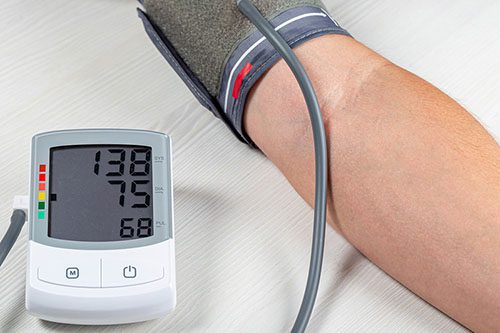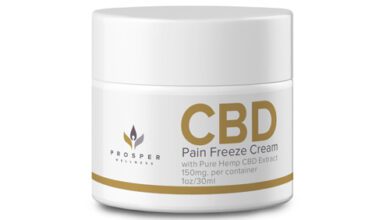To stay healthy: treat hypertension well

More than ever, high blood pressure (HBP or hypertension) has worried a large number of French people since the start of the coronavirus health crisis. Although it has been observed that this disease was linked to an increased risk of complications from the infection, age and overweight, which are often associated, would be more directly involved.
The doctors also quickly reassured on two points: hypertension does not promote contagion itself and the treatments to stabilize it are not responsible for the progression of the virus in the body. They would even be protective for patients with concomitant cardiac pathology. It is therefore essential to be well monitored, even in the post-lockdown period, and in the long term, to preserve your overall health. However, if 12 million French people are well treated, 4 million would ignore themselves hypertensive, failing to feel clear symptoms. It’s a shame, because the consequences can be serious on the cardiovascular and cerebral levels, even though there are effective treatments.
Risk factors to look out for
The milestones of the fifties and the following decades should encourage us all to open our eyes, because hypertension affects 25% of people at 50, 35% at 60, 50% at 70 and 70% at 80 in medium. Age is thus one of the main aggravating factors, and over time, the wall of the arteries ages, it stiffens, and the pressure logically increases.
Heredity also plays an important role and if one of the parents was hypertensive early on, the risk of being hypertensive in turn is multiplied by two.
The side effect of certain medications should not be overlooked either: oral contraceptives and hormone replacement therapy for menopause with estrogen, as well as anti-inflammatories in occasional self-medication or prescribed over a prolonged period, can also increase voltage.
But that’s not all: abdominal overweight and obesity and diabetes are also responsible for high blood pressure. And the hygiene of life is finally largely involved in its development, in particular favored by smoking, excessive consumption of salt and alcohol, as well as by a sedentary lifestyle.
A word of advice: list all the criteria you think you meet in order to discuss them precisely with the attending physician.
Monitoring to be established
Taking blood pressure at the doctor’s office is part of the basic clinical examination. It is still necessary to make an appointment fairly regularly, once a year for a check-up, and without waiting for warning signals, because hypertension is one of those silent enemies that progresses quietly.
It involves observing the pressure exerted by blood flow on the walls of the arteries by two different measurements, expressed in millimeters of mercury (mmHg): one for the systolic pressure at the time of a cardiac impulse, a heartbeat, causing an increase in blood volume in the artery and therefore a dilation of its wall (highest figure); and the other for diastolic blood pressure, when the vessel relaxes immediately after (lowest number). The threshold limit is set at 14-9 for both men and women, regardless of age, and it is better to be below if you have several risk factors (smoking, overweight, etc.).
As this limit is approached and, of course, beyond, increased monitoring and appropriate management are required. It therefore becomes useful to equip yourself with a blood pressure monitor at home in order to take measurements regularly, over a period of 3 days, three measurements in the morning on waking spaced a few minutes apart and three measurements in the evening before going to bed, carried out at calm. This is the principle of self-measurement to be carried out on medical prescription a few days before the consultation with your doctor and cardiologist.
The lifestyle to adopt
If we are powerless in the face of heredity and the effects of aging, we can act on other risk factors. Weight loss, regular physical activity, reducing salt in the diet if it was too high, as well as stopping smoking and alcohol, often allow mild and recent hypertensives to iron below the 14-9 mark and sometimes avoid taking medication. It is necessary to be made help by its doctor to act on all these factors.
Medicines to treat high blood pressure
There are seven different classes of drugs for lowering blood pressure: beta and alpha blockers, calcium channel blockers (InCa), diuretics, ACE inhibitors, angiotensin receptor antagonists II (ARA2) and central antihypertensives. Their effectiveness varies from person to person and they can have different side effects, such as swelling of the legs, coughing, erection problems in men… The prescription must therefore be subject to a discussion to target the molecule that suits us best, or to change it when an undesirable effect is too disturbing, and, of course, if there is no result. It may also be necessary to take several medications. But the main thing is ultimately to tolerate this treatment well in order to take it regularly over time, that is to say for life most often. But to live better!







